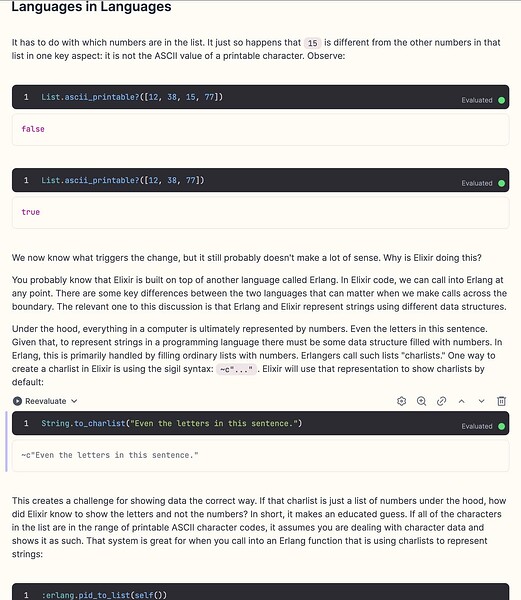I am going through some tutorials, and one of the tasks is to create a list of items by taking first two elements of the existing item and appending them to the end of said list. The problem I have is that for some numerical values in the list, I get a strange response returned.
The Cos:
defmodule Tutorial do
def mirror_row(row) do
[first, second | _tail] = row
row ++ [second, first]
end
end
the results I get are:
iex> Maps.mirror_row([1, 2, 3])
[1, 2, 3, 2, 1]
iex> Maps.mirror_row([121, 12, 123])
~c"y\f{\fy"
The 1st result is as expected, but the 2nd I would expect [121, 12, 123, 12, 121].
What is actually happening here and why?
I chacked this for different values and it does not make sense to me.
Some other results:
iex> Maps.mirror_row([123, 122, 121])
~c"{zyz{"
iex> Maps.mirror_row([123, 22, 12])
[123, 22, 12, 22, 123]
iex> Maps.mirror_row([121, 122, 123])
~c"yz{zy"
iex> Maps.mirror_row([121, 12, 123])
~c"y\f{\fy"
iex> Maps.mirror_row([121, 12, 13])
~c"y\f\r\fy"
iex> Maps.mirror_row([121, 22, 13])
[121, 22, 13, 22, 121]
Thanks.























